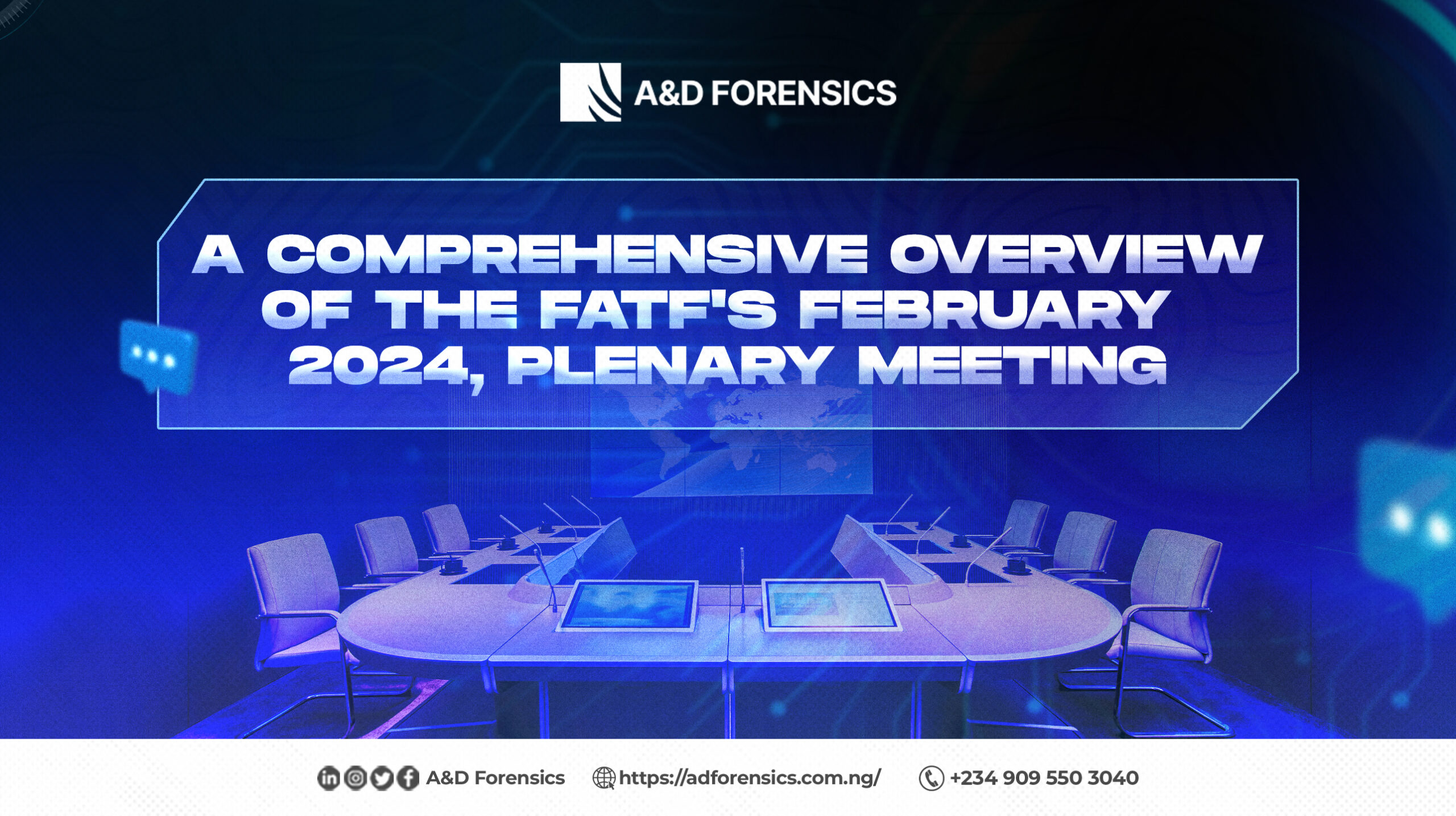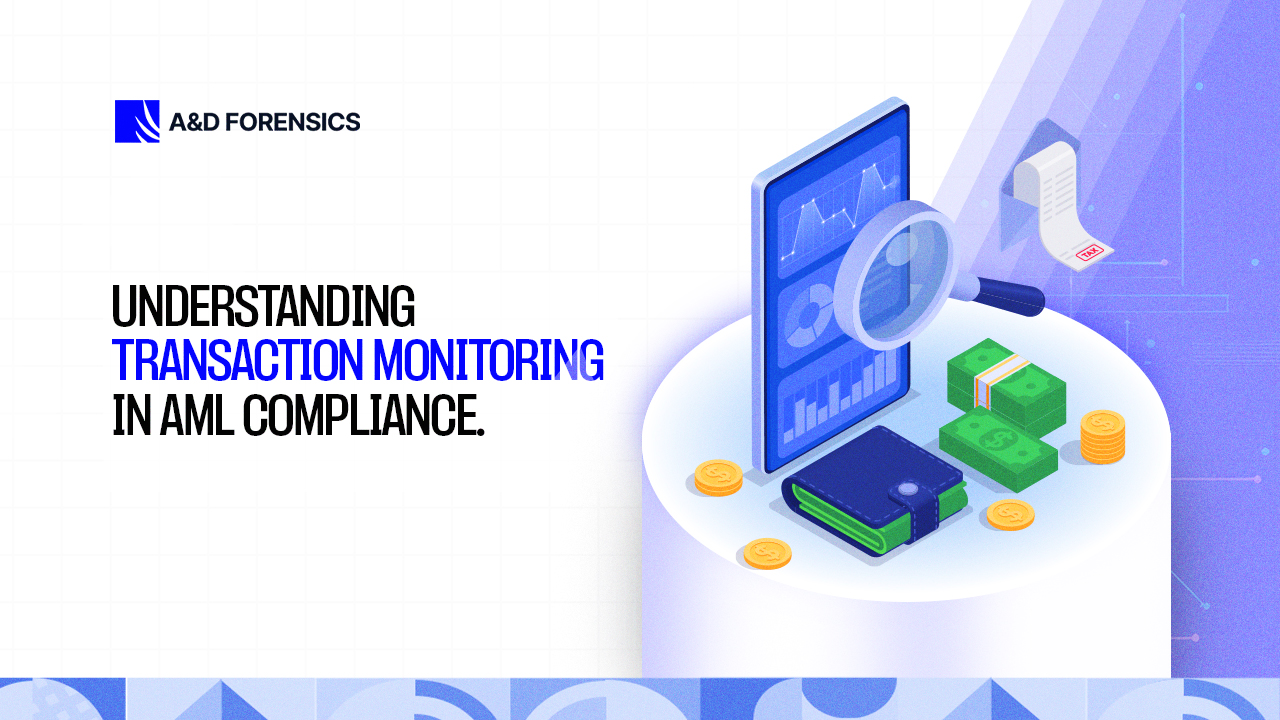The FATF February 2024, Plenary Meeting took place in Paris on February 23, 2024, marking a crucial event in global financial regulations and the fight against money laundering and terrorism financing. This Plenary session was led by the FATF President, T Raja Kumar of Singapore. The Plenary meeting produced noteworthy insights that hold substantial importance for international financial regulation. This article discusses some key highlights and outcomes of the FATF Plenary Meeting.
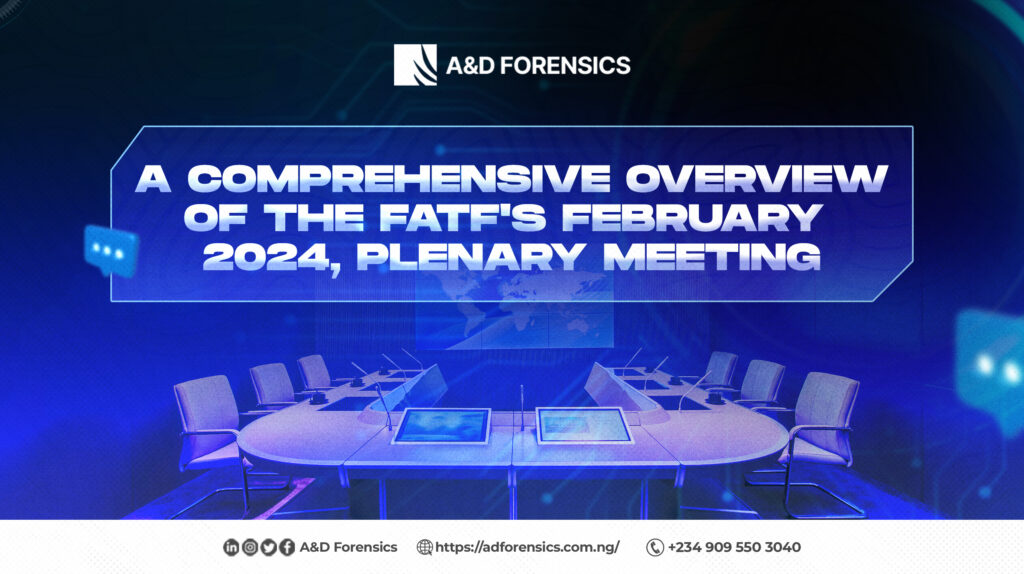
FATF Plenary Meeting February 2024 Changes to the Grey List
Recall that Nigeria was added to the FATF Grey List last year at the second Financial Action Task Force FATF Plenary under the two-year Singapore Presidency of T. Raja Kumar held between 22-24 February 2023. Unfortunately, Nigeria is still on this list. However, since Grey-listing might aid a nation in righting its wrongs and reviving its struggling economy, this greylist serves more as a warning to keep the nation from being included to the more stringent blacklist, where laws and fines are more harsh.
During the FATF February 2024, Plenary Meeting, Kenya and Namibia were added to the Grey list which is the list of countries under increased monitoring, signifying their commitment to swiftly resolving identified deficiencies.
Hence, the updated FATF Grey List identified 2 more jurisdictions under increased monitoring, ready to adopt a proactive approach to address strategic deficiencies in their anti-money laundering (AML), terrorist financing, and proliferation financing regimes.
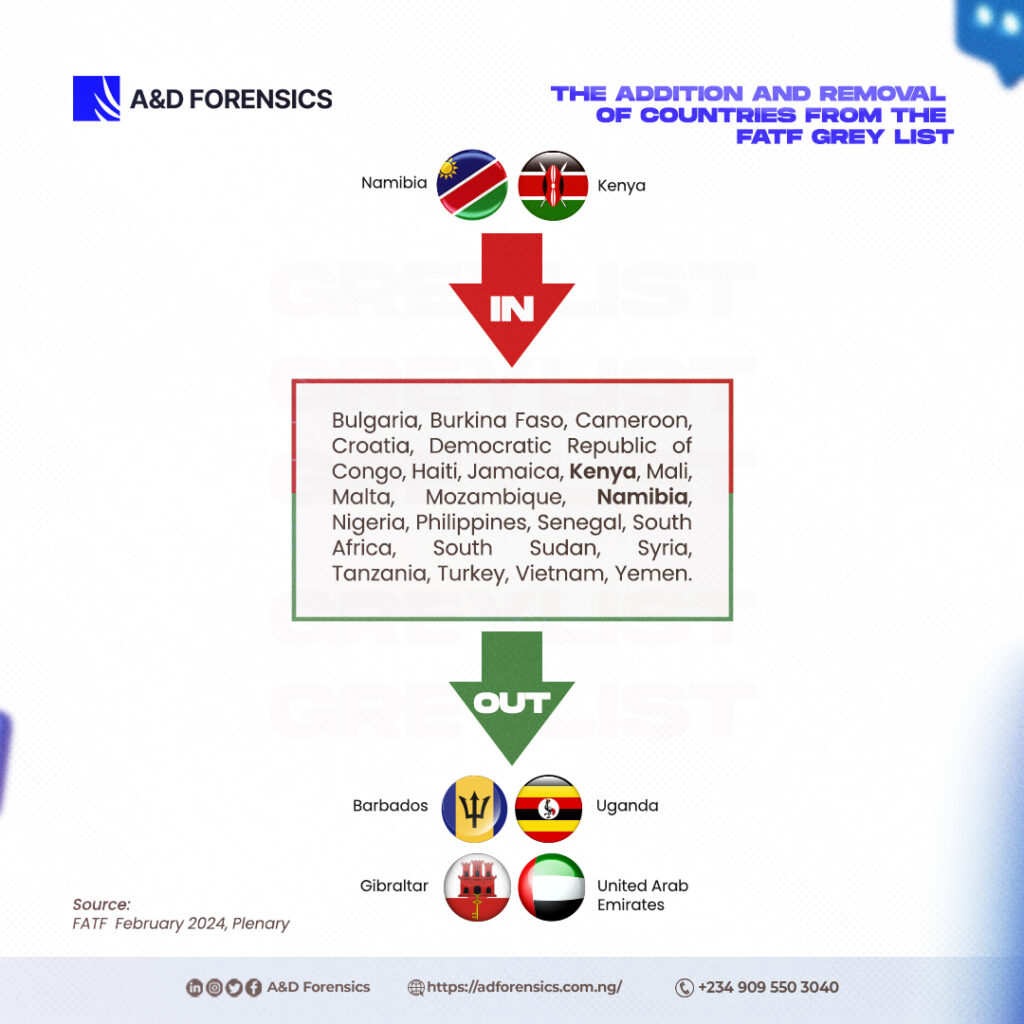
Furthermore, commendations were extended to Barbados, Gibraltar, Uganda, and the United Arab Emirates for their substantial progress in rectifying AML/CFT deficiencies and eventual exit from the Grey List. Following successful on-site visits, these jurisdictions are no longer subject to increased monitoring, marking a significant achievement in enhancing their financial regulatory frameworks.
FATF Plenary Meeting February 2024 Changes to the Black List
Countries or jurisdictions with serious strategic deficiencies to counter money laundering, terrorist financing, and proliferation financing are placed under a call for action. Importantly, there were no additions to this list during the FATF plenary meeting.
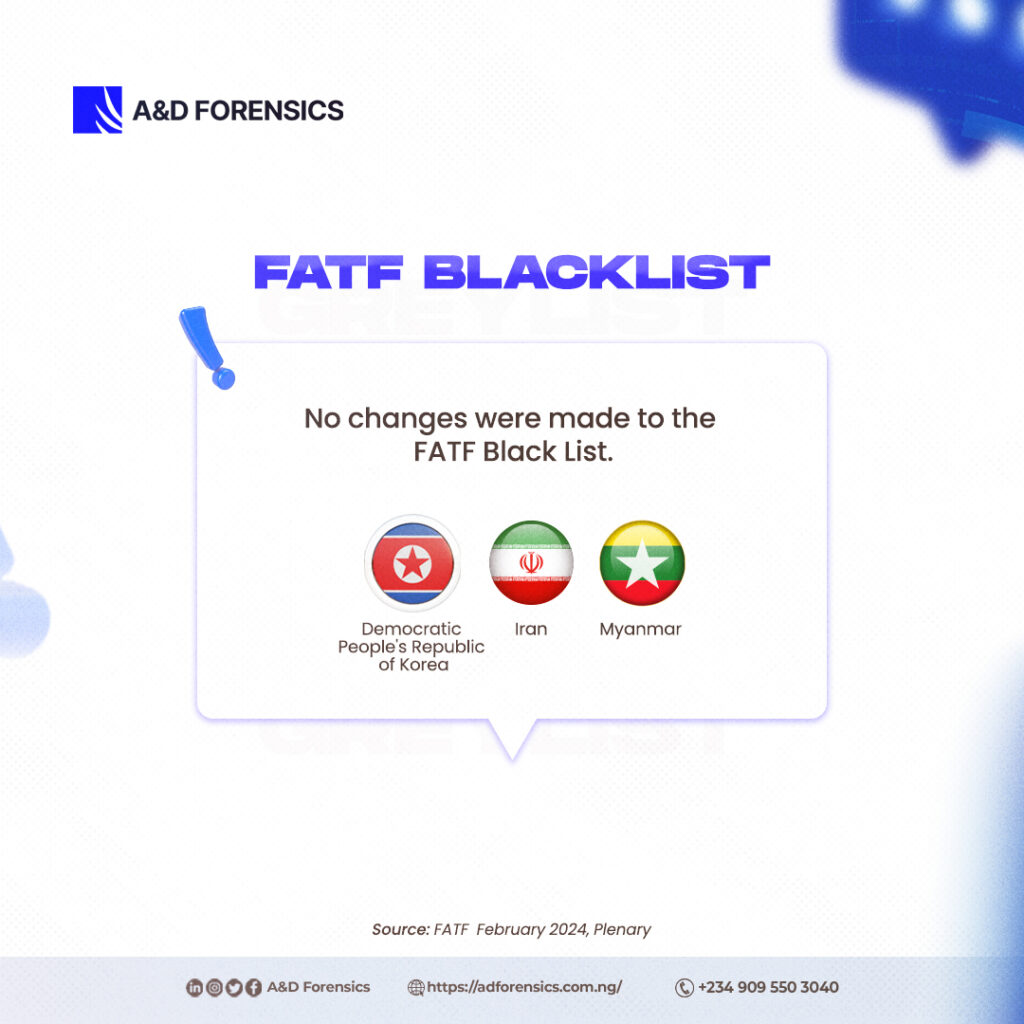
Other Key Developments From the FATF Plenary Meeting.
During the FATF February 2024, Plenary Meeting, other key developments were discussed, such as multiple strategic initiatives including improving beneficial ownership transparency, leveraging digital transformation (virtual assets), payment transparency, and protecting non-profit organizations from the abuse of terrorist financing.
A. Strategic Initiatives
Delegates deliberated on setting strategic priorities for 2024-2026, focusing on preventing abuse of the international financial system by criminals and terrorists. These priorities will be presented at the upcoming FATF Ministerial meeting in April.
Some of these Strategic Initiatives include:
- Increasing Beneficial Ownership Transparency:
Highlighting the significance of worldwide transparency in beneficial ownership, the FATF Plenary meeting produced an updated guidance for Recommendation 25 on Beneficial Ownership and Transparency of Legal Arrangements. This guidance aims to support stakeholders in assessing and mitigating the risks associated with money laundering and terrorist financing,with the aim to uncover individuals hiding criminal activities within complex structures or legal arrangements.
- Leveraging Digital Transformation: Virtual Assets:
Recognizing the existing worldwide gaps in implementing Recommendation 15 concerning virtual assets, the FATF has initiated a roadmap to enhance standards for virtual asset service providers (VASPs). The FATF Plenary agreed to publish an overview of measures taken by jurisdictions with significant virtual asset activity, aiming to promote global regulation and supervision for AML/CFT purposes.
- Payment Transparency:
The suggested changes to Recommendation 16 aim to improve the speed, affordability, and transparency of cross-border payments, ensuring alignment with AML/CFT standards while maintaining technology neutrality. These proposed revisions will be subjected to public consultation.
- Protecting Non-Profit Organizations:
Amendments to Recommendation 8 aim to safeguard non-profit organizations (NPOs) from potential terrorist financing abuse through effective risk based measures. The FATF updated its best practices and assessment methodology to ensure NPOs vulnerable to terrorist financing abuse are protected without disrupting legitimate activities.
B. FATF Presidency 2024-2026:
Ms. Elisa de Anda Madrazo of Mexico has been appointed as the next President of the FATF for a fixed two-year term, effective from July 1, 2024. This decision follows a comprehensive process, including consultations with all delegations.
C. FATF Expanded Statement on the Russian Federation.
After Russia invaded Ukraine in 2022, the FATF released an updated statement that built upon their previous one from February 2023. The watchdog highlighted ongoing concerns regarding the risks associated with the Russian Federation, such as increased economic ties with nations subject to FATF countermeasures, proliferation financing, and malicious cyber activities. Given the gravity of these risks, the FATF emphasized the importance for its members to remain vigilant and implement proactive measures to protect both their own interests and the stability of the global financial system.
Action Steps For Compliance Officers
To stay current with the latest FATF Plenary meeting outcomes, compliance officers must undertake the following steps:
- Compliance officers need to familiarize themselves with the outcomes of the February plenary, especially concerning any upcoming Mutual Evaluation Reports (MERs) in countries where they operate.
- Given the alterations to the grey list,compliance officers should swiftly update the risk scores for affected countries and implement the necessary levels of due diligence moving forward.
- Lastly, it is important for compliance officers to take note of dates associated with forthcoming guidance issued by the FATF, as such guidance will play a crucial role in shaping and informing the regulatory approaches adopted by national bodies.
Conclusion
In conclusion, the outcomes of the FATF February 2024, Plenary Meeting reflect ongoing efforts to fortify the global financial system against emerging risks and challenges, ensuring a resilient and secure financial landscape.
Contributor: Ibrahim Anuoluwapo




